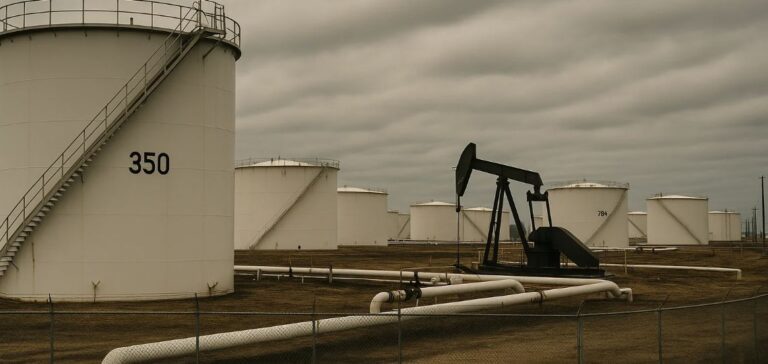Commercial crude oil inventories in the United States increased less than anticipated during the week ending 11 April, according to the latest figures published by the Energy Information Administration (EIA). The rise amounted to approximately 500,000 barrels, nearly half the 900,000 barrels forecasted by analysts surveyed by Bloomberg. Total commercial stockpiles now stand at 442.9 million barrels, the highest level since July 2024.
Decline in Cushing inventories and stable production
In contrast to the national trend, reserves stored in Cushing, Oklahoma — the main delivery hub for the West Texas Intermediate (WTI) contract — decreased by around 700,000 barrels. This development occurred even as US crude production remained steady at 13.46 million barrels per day. Refinery utilisation slightly declined, from 86.7% to 86.3%, which may account for the build-up of unprocessed stock.
Export surge and statistical adjustment
US crude oil exports saw a significant weekly surge of 57%, reaching a twelve-month high. Meanwhile, imports dropped marginally by 3%. Part of the observed weekly variation is attributed to a technical adjustment made by the EIA, which added around 922,000 barrels per day to inbound volumes on the US market. This statistical correction, unrelated to actual weekly activity, is a routine procedure to refine previous estimates.
Oil market reaction
At the time of publication, oil prices were already trending upward. The WTI barrel for May delivery rose 2.38% to $62.79. The North Sea Brent benchmark, for June delivery, was trading at $65.95, up 1.99%. The price increase reflects a range of contributing factors, including trade flow data and technical inventory adjustments.






















